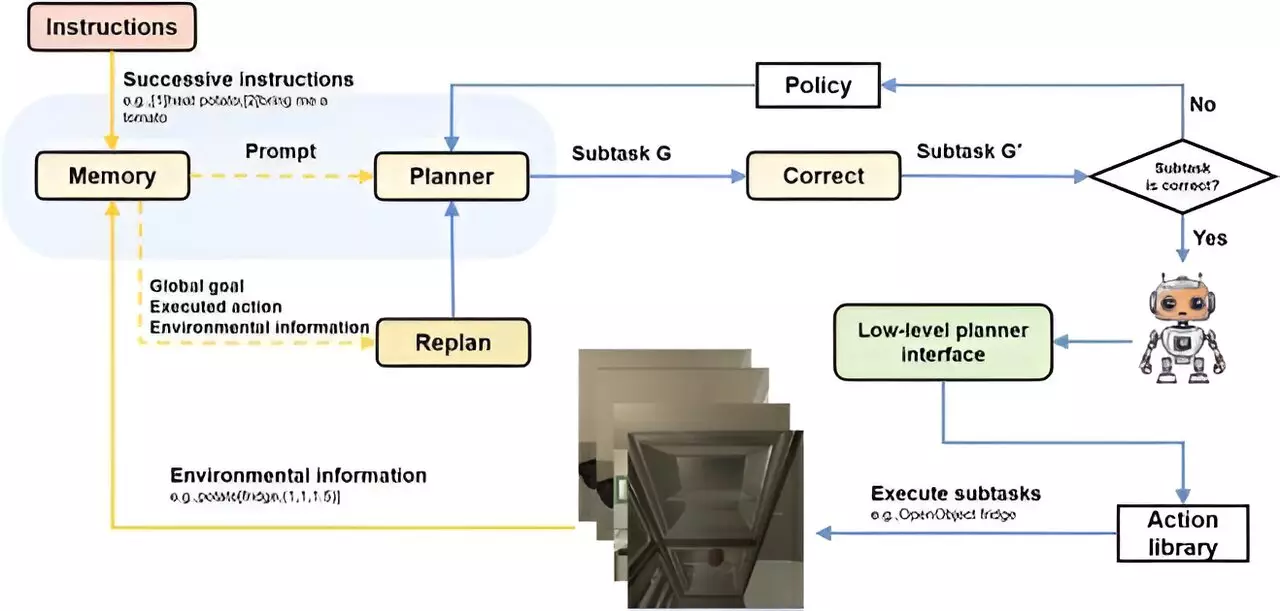The recent study published by researchers from Shanghai University introduces an innovative artificial intelligence framework called “Correction and Planning with Memory Integration” (CPMI). This framework, utilizing large language models (LLMs), aims to enhance the efficiency and effectiveness of robots in executing complex, instruction-based tasks. Unlike traditional methods that relied on explicit programming and extensive data, the CPMI framework integrates memory and planning capabilities within LLMs. This integration allows robots to learn and adapt in real-time, improving their ability to handle unexpected challenges or changes in tasks.
In the past, robots struggled with interpreting complex instructions and adapting to new situations. However, the use of LLMs as central decision-making elements in robotic tasks marks a significant departure from conventional approaches. By breaking down instructions into actionable steps, planning actions more effectively, and correcting errors promptly, robots equipped with the CPMI framework demonstrate a higher level of task efficiency and adaptability.
One of the standout features of the CPMI framework is its memory module, which grants robots the ability to remember and learn from past tasks. This human-like capability enables robots to continuously improve their performance over time and swiftly adjust to novel scenarios. This approach was put to the test in the ALFRED simulation environment, where the CPMI framework excelled in “few-shot” scenarios, showcasing superior success rates and enhanced task efficiency.
The applications of the CPMI framework are far-reaching, spanning from household robots aiding in domestic chores to industrial robots navigating complex manufacturing processes. As LLMs evolve, the capabilities of CPMI-equipped robots are poised to expand, ushering in a new era of autonomous and intelligent machines. The research team at Shanghai University is optimistic about the future of robotic technology and is dedicated to refining their framework further.
By melding memory and planning capabilities in a single AI-driven framework, the CPMI framework paves the way for robots to continuously enhance their decision-making processes. This advancement not only boosts performance but also reduces the reliance on extensive pre-programming and data collection. As the technology progresses, the dream of versatile, adaptable robots capable of autonomously performing a myriad of tasks is on the brink of realization.
The research conducted by the team at Shanghai University not only sets a new standard for AI in robotics but also propels the integration of advanced AI technologies into everyday life. With ongoing developments in frameworks like CPMI, the vision of intelligent, self-sufficient robots is steadily materializing. As the future unfolds, the possibilities for enhanced robotic capabilities and applications are limitless.


Leave a Reply